Idea by
Bojana Papic and Yann Junod
LuftSchloss Collective
https://luftschlosscollective.com/
Call for ideas 2020
This Used To Be Our Home
This Used To Be Our Home
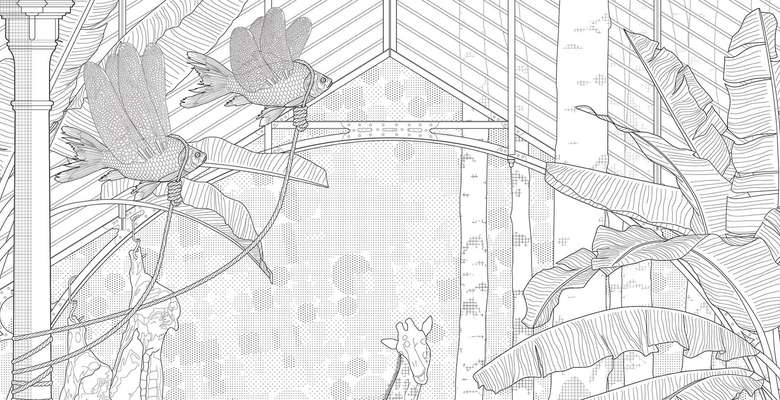
- New alliances
Situated within the wider debate on political agency of architecture, the project addresses highly politicised topics such as colonialism, climate change, and migration through a lens of traditional architectural drawing techniques and creative writing.
The fictionalisation and embellishment, through the mediums of fairy tales and architectural illustrations, re-contextualise and re-present the specific contemporary cases of invasion, transforming them into universal narratives. This allows for the narratives to be shared with wider audiences, while the dystopic undertones emphasise the alarming magnitudes of the political, ethical and environmental implications of the true events. Focusing on the human and non-human actors who are suffering the consequences of these events, the project gives voice to numerous marginalised actors and territories that are being colonised and exploited, and whose integrity is continuously threatened.
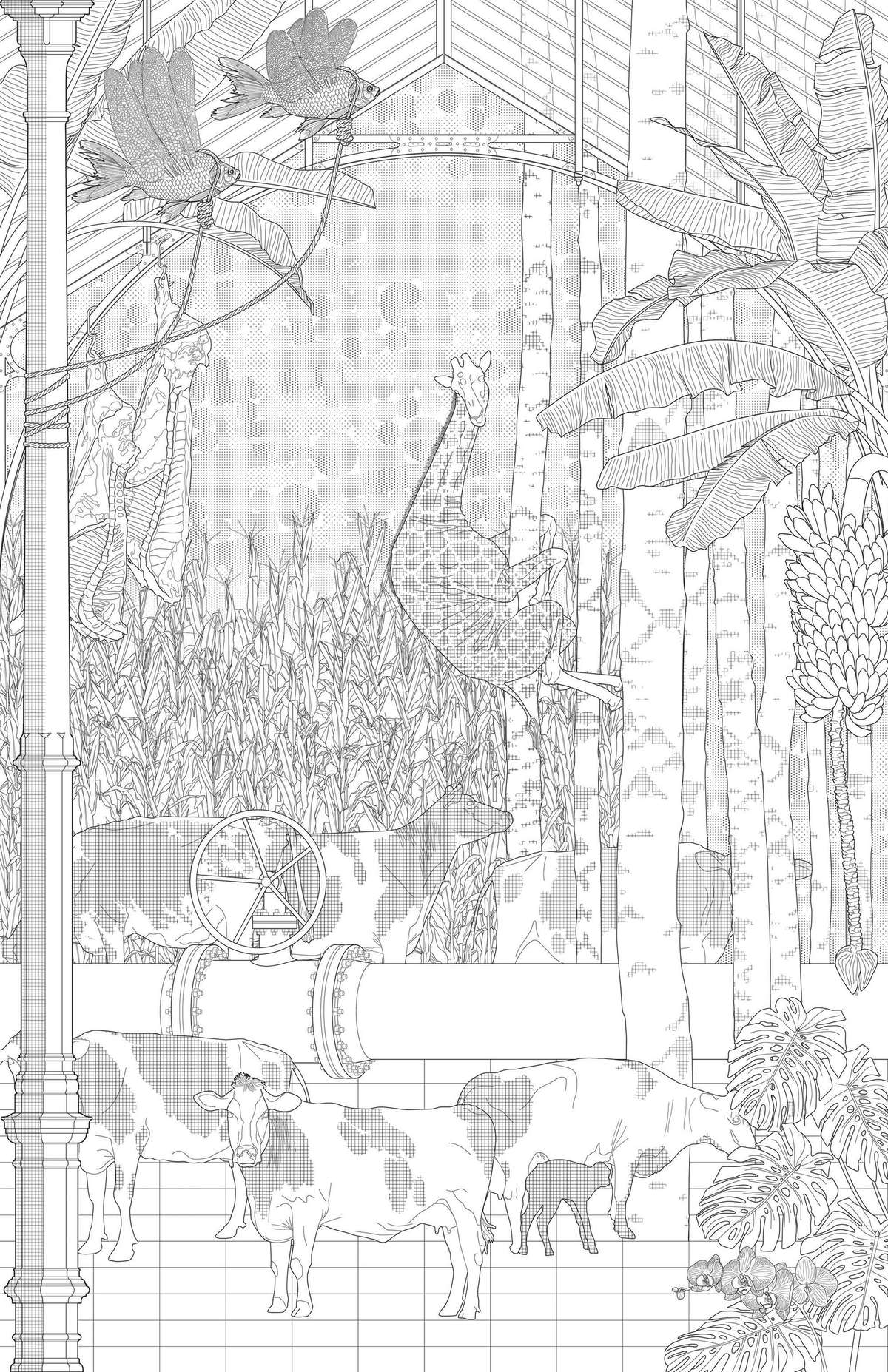
"As the stories keep multiplying we are growing less comforted and more resigned. This invasive power is too great to be opposed." (This Used To Be Our Home)
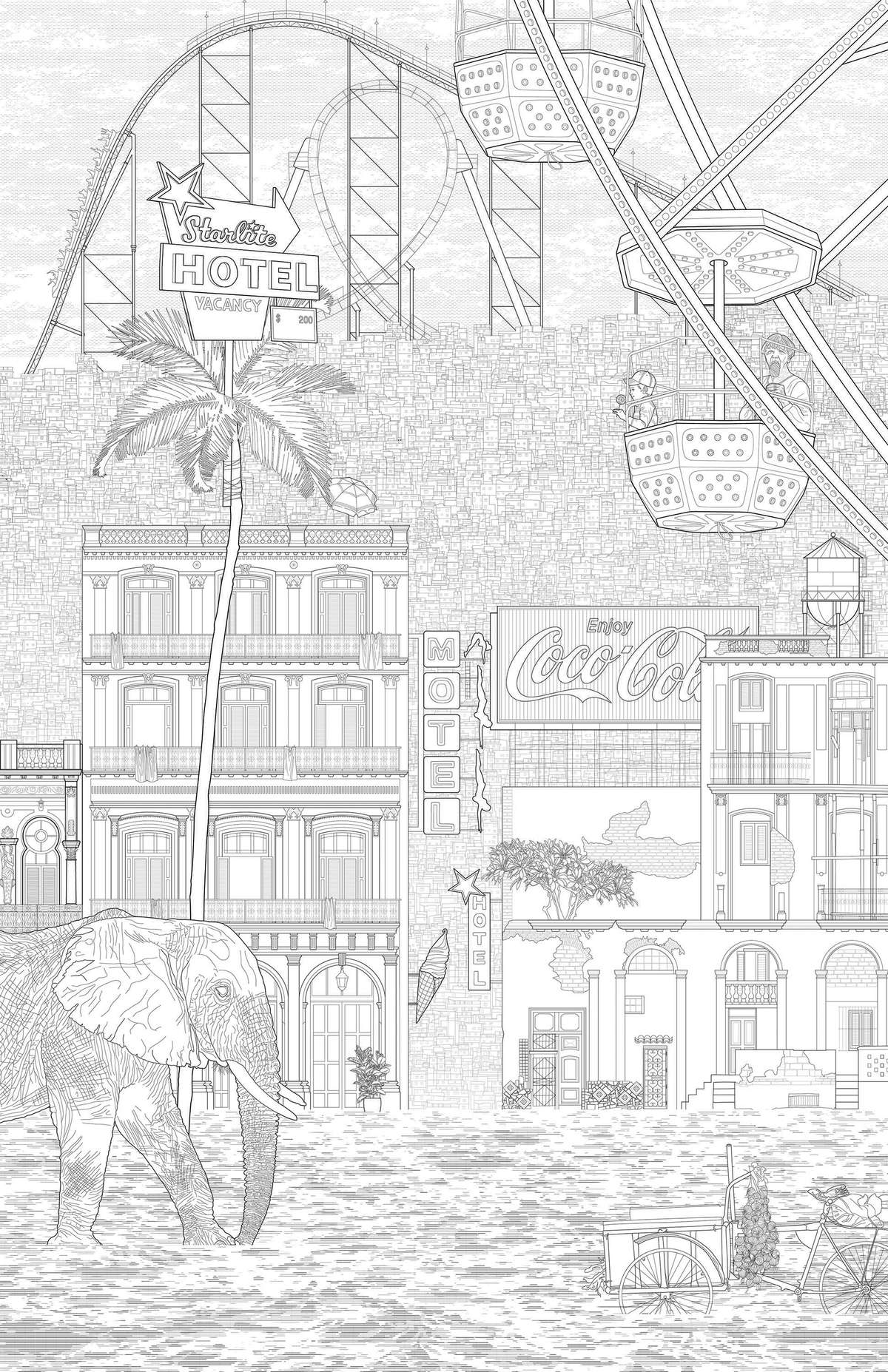
"It feels like we are losing the ground under our feet. The houses we lived in our whole lives are becoming foreign and our neighbours are turning into strangers." (This Used To Be Our Home)
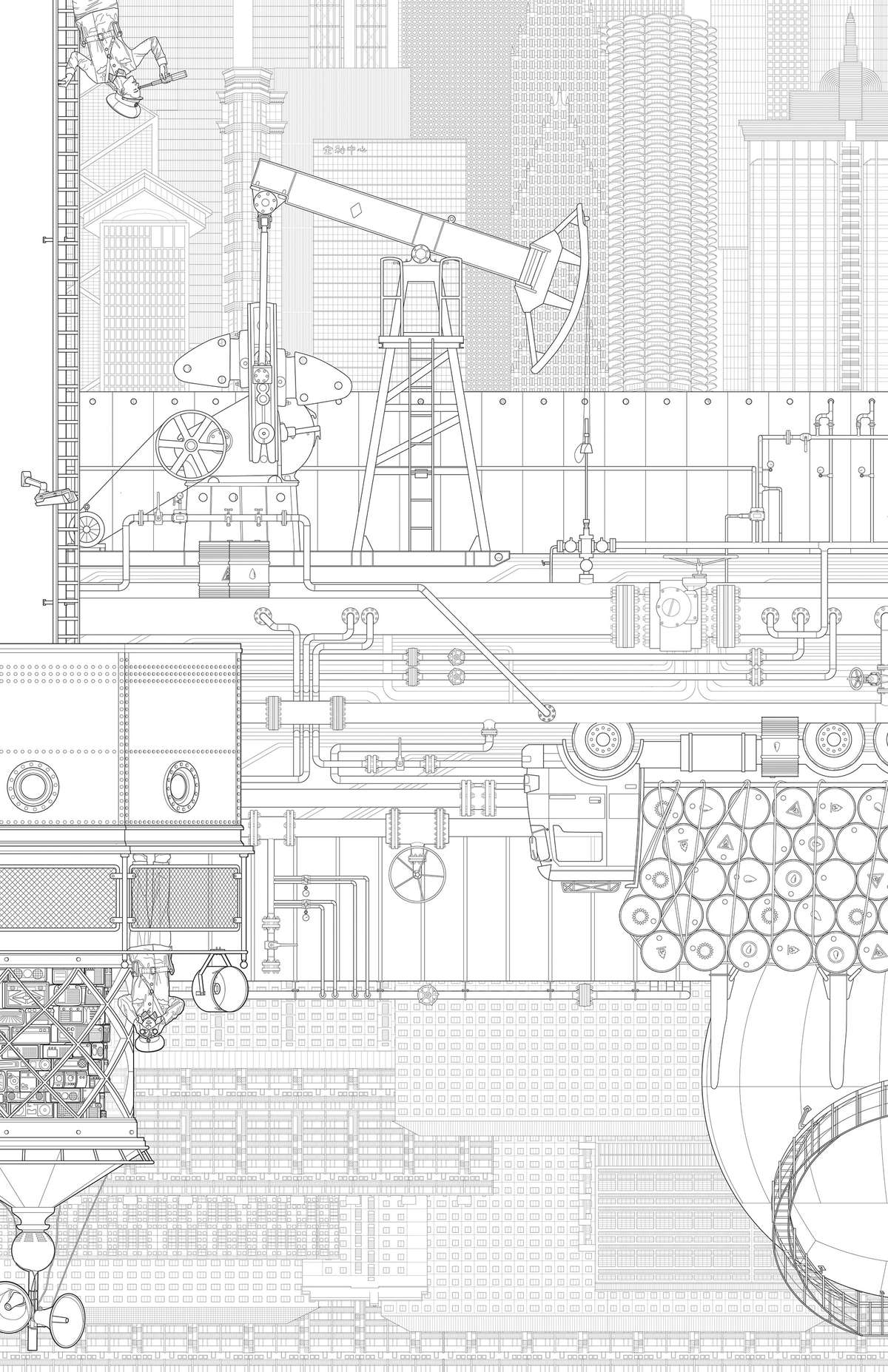
"At first we thought it was just our village, but the stories are reaching us from all over the country. We are told of other absorbed fields, forests and towns, and divided cities." (This Used To Be Our Home)
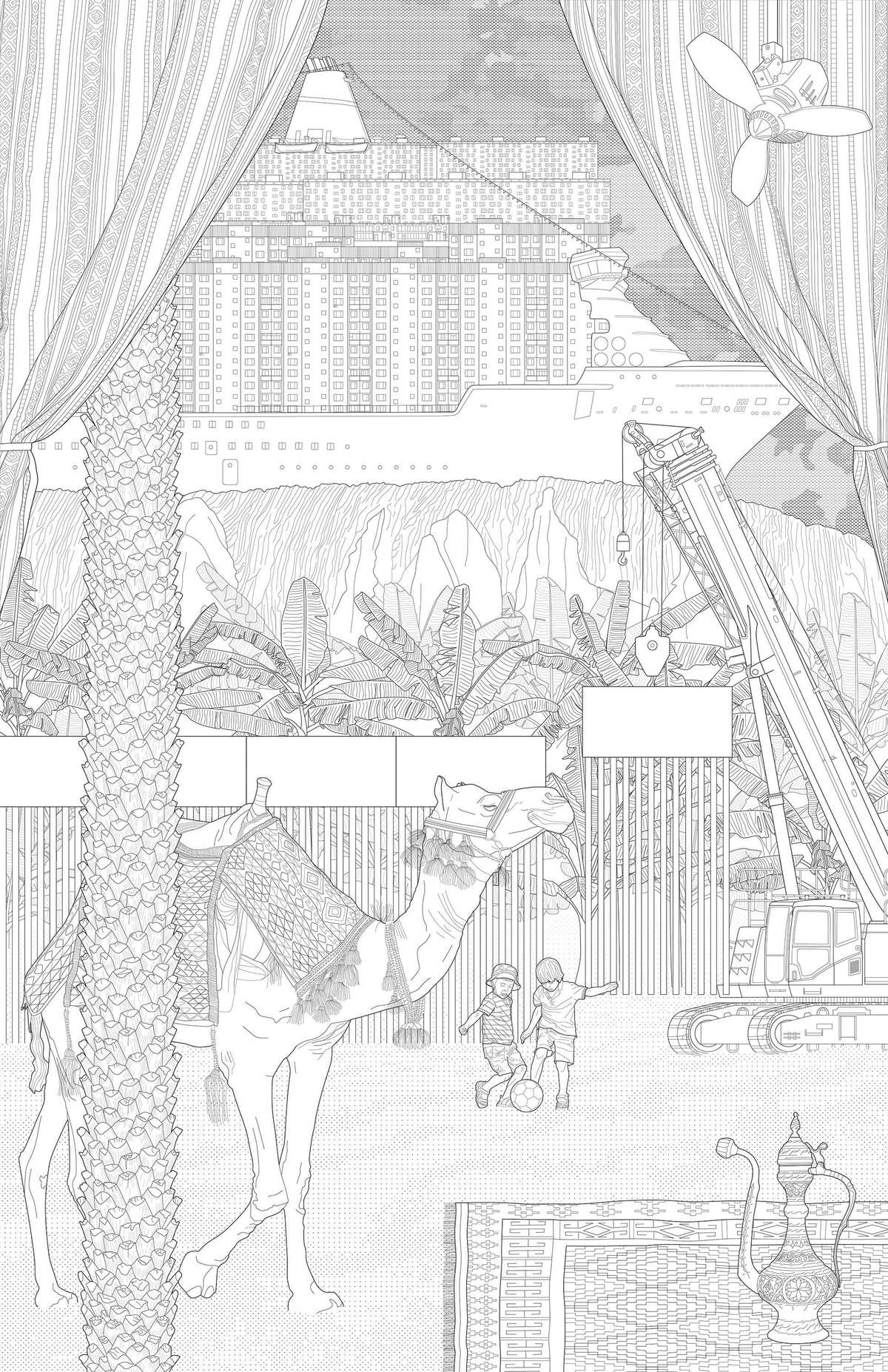
"It seemed like it happened overnight, but in reality it was creeping up for months. Centimetre by centimetre. Since then, olive groves, orangeries and whole mountains have been swallowed by the fences. Every year one more family is either separated or reunited beyond that metal line." (This Used To Be Our Home)
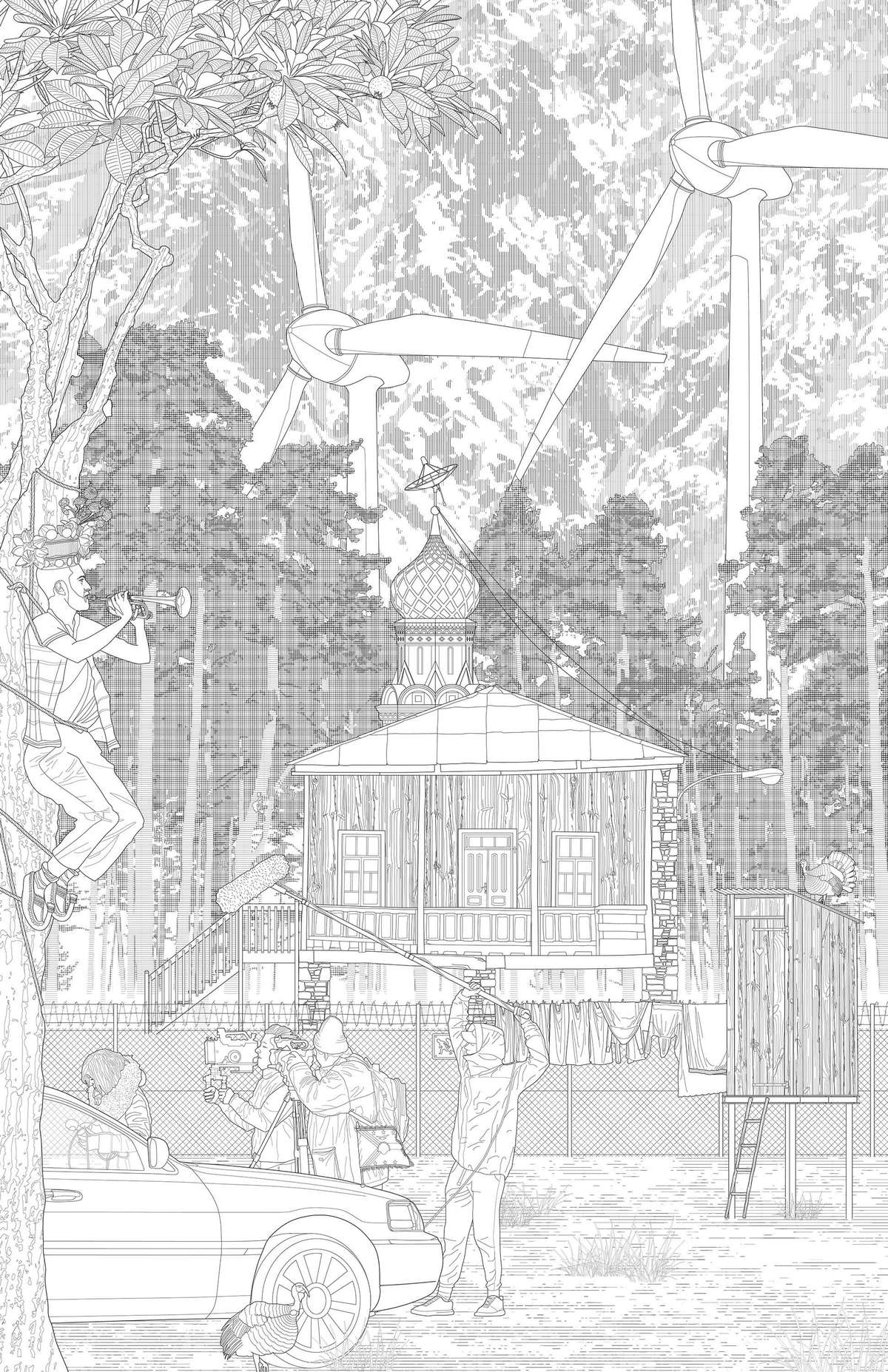
"The film crew came again. After what happened, many came - ministers and presidents during election times, NGOs, international peace agencies and movie stars. At first we were happy to see them, to tell them about our predicaments, about the citrus groves we lost and the loved ones we have not seen in years." (This Used To Be Our Home)
This Used To Be Our Home
This Used To Be Our Home

- New alliances
Situated within the wider debate on political agency of architecture, the project addresses highly politicised topics such as colonialism, climate change, and migration through a lens of traditional architectural drawing techniques and creative writing.
The fictionalisation and embellishment, through the mediums of fairy tales and architectural illustrations, re-contextualise and re-present the specific contemporary cases of invasion, transforming them into universal narratives. This allows for the narratives to be shared with wider audiences, while the dystopic undertones emphasise the alarming magnitudes of the political, ethical and environmental implications of the true events. Focusing on the human and non-human actors who are suffering the consequences of these events, the project gives voice to numerous marginalised actors and territories that are being colonised and exploited, and whose integrity is continuously threatened.
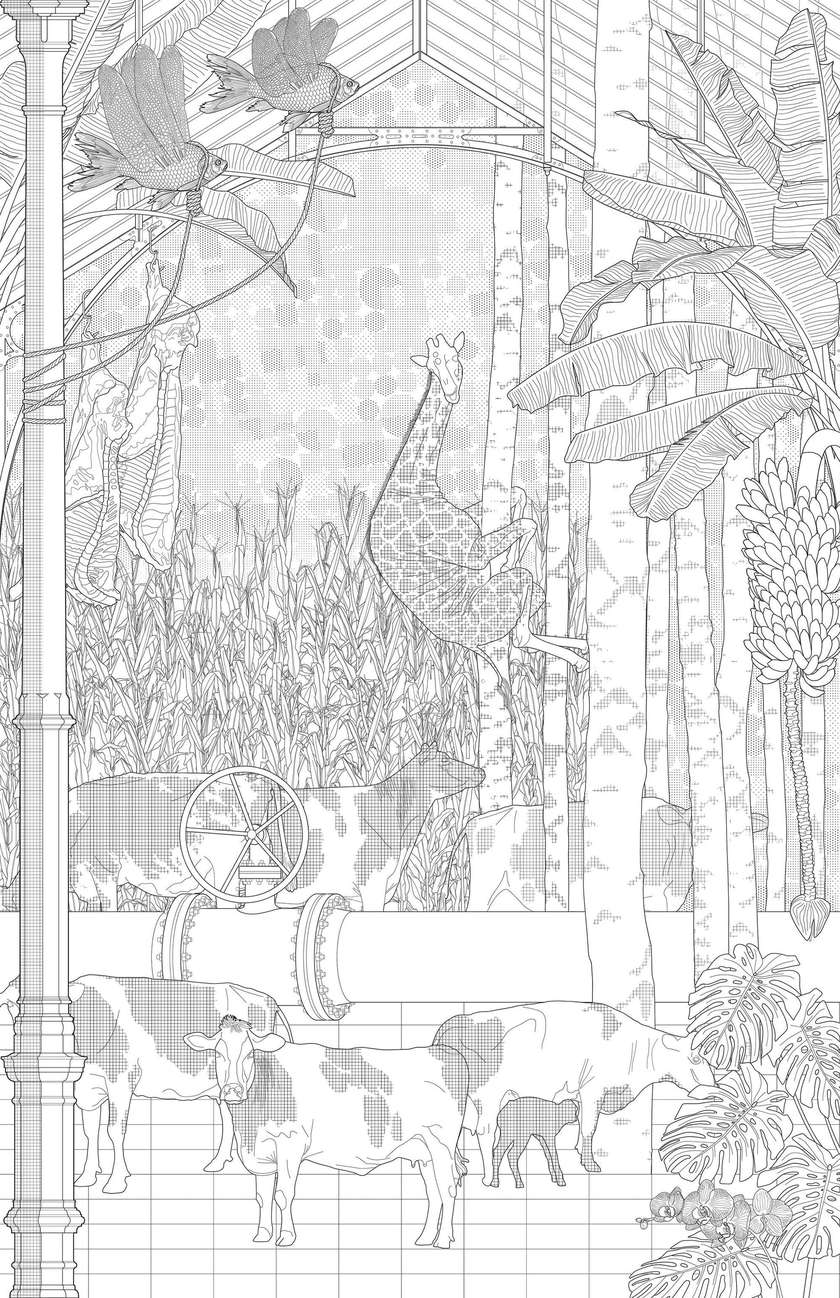
"As the stories keep multiplying we are growing less comforted and more resigned. This invasive power is too great to be opposed." (This Used To Be Our Home)
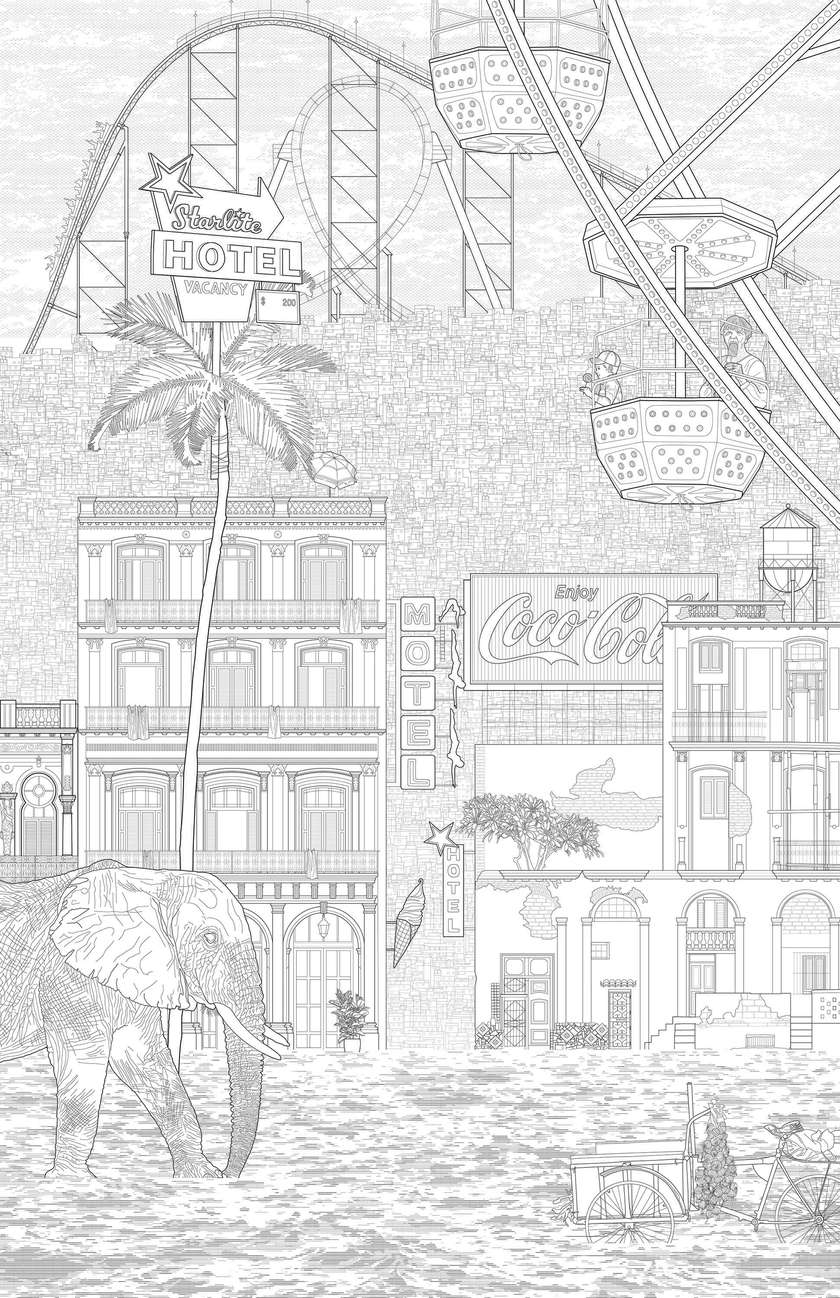
"It feels like we are losing the ground under our feet. The houses we lived in our whole lives are becoming foreign and our neighbours are turning into strangers." (This Used To Be Our Home)
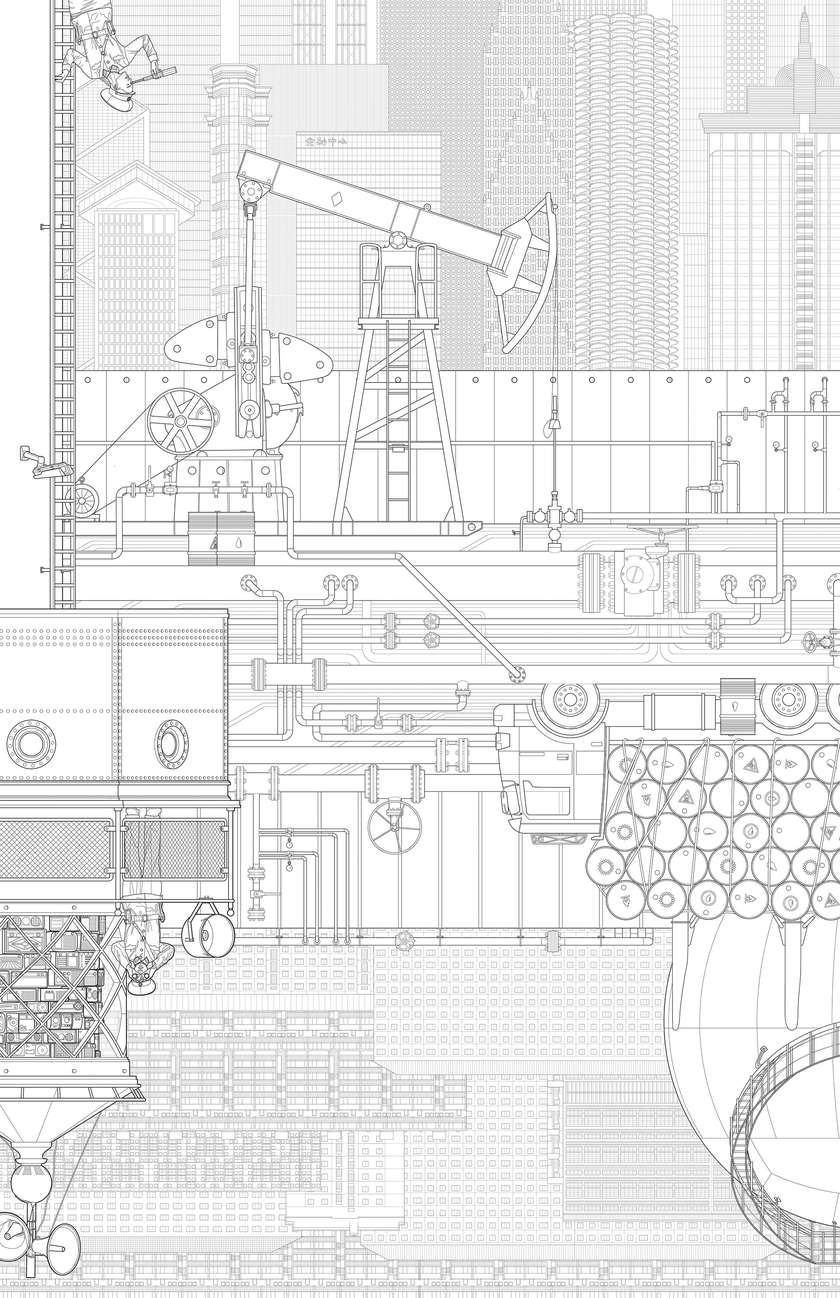
"At first we thought it was just our village, but the stories are reaching us from all over the country. We are told of other absorbed fields, forests and towns, and divided cities." (This Used To Be Our Home)
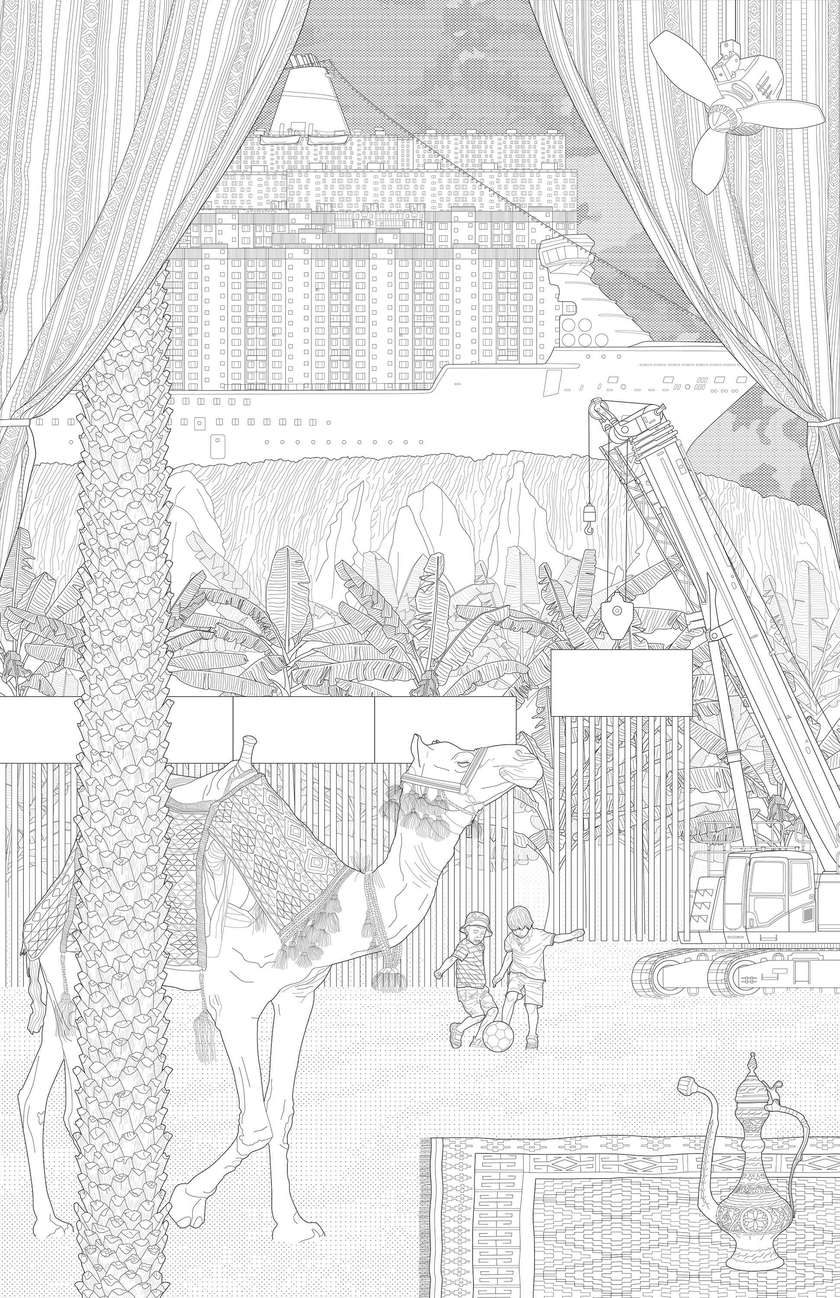
"It seemed like it happened overnight, but in reality it was creeping up for months. Centimetre by centimetre. Since then, olive groves, orangeries and whole mountains have been swallowed by the fences. Every year one more family is either separated or reunited beyond that metal line." (This Used To Be Our Home)
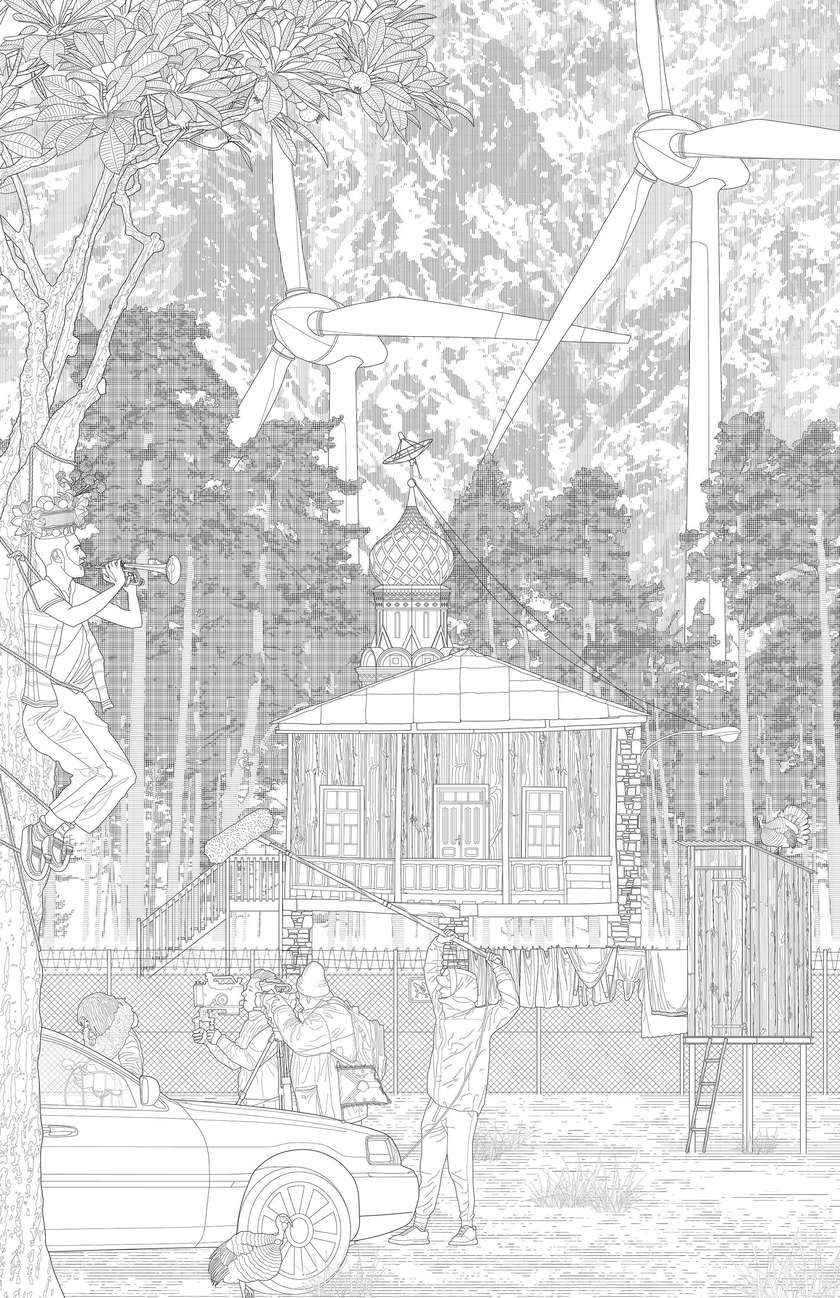
"The film crew came again. After what happened, many came - ministers and presidents during election times, NGOs, international peace agencies and movie stars. At first we were happy to see them, to tell them about our predicaments, about the citrus groves we lost and the loved ones we have not seen in years." (This Used To Be Our Home)